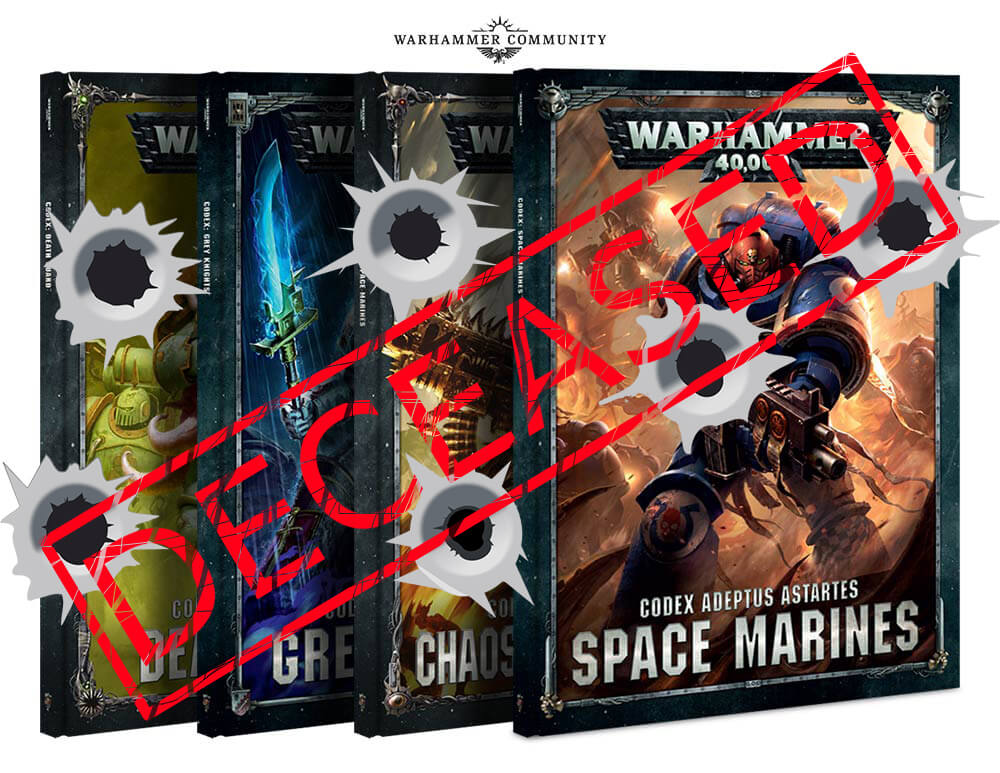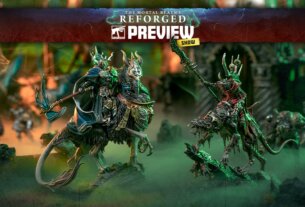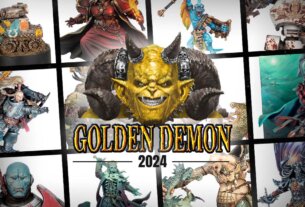It’s Friday, I’ve a provocative click-bait title, must be a new musing! This time on if physical Codexes* and Battletomes have had their day in the sun and need to be retired.
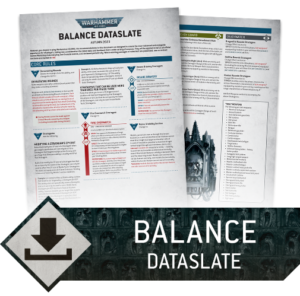 This musing came off the back of the release of the latest round of Warhammer 40k Balance Dataslates released by Games Workshop that contains a load of points balancing and army composition changes. This tends to cause a problem because numerous people have purchased a physical copy of a Codex that has now been changed within barely a couple of months of release – the bottom line is that the book is no longer valid without additional errata and adjustments.
This musing came off the back of the release of the latest round of Warhammer 40k Balance Dataslates released by Games Workshop that contains a load of points balancing and army composition changes. This tends to cause a problem because numerous people have purchased a physical copy of a Codex that has now been changed within barely a couple of months of release – the bottom line is that the book is no longer valid without additional errata and adjustments.
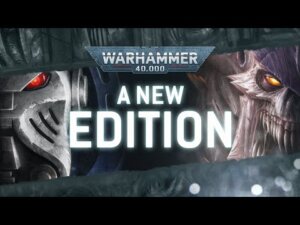 Now this leads onto another issue that occurs far too frequently, when a Codex or Battletome can often be made completely invalid when a new edition of the game comes out. We saw this with the World Eaters Codex which barely had six months of life before being confined to the bin when 10th Edition 40k dropped. This is compounded by a 3 year life cycle of game edition updates (another musing on how I think this is ridiculously short will come in the future). Let’s be honest, a hard-back book that costs in the region of £25~30 shouldn’t be made null and void in less than a year under any circumstance and leaves a really bad taste in your mouth when it happens. We’re not talking replaced either, that book will still be sold with incorrect rules until an unknown point in time when a new version is created.
Now this leads onto another issue that occurs far too frequently, when a Codex or Battletome can often be made completely invalid when a new edition of the game comes out. We saw this with the World Eaters Codex which barely had six months of life before being confined to the bin when 10th Edition 40k dropped. This is compounded by a 3 year life cycle of game edition updates (another musing on how I think this is ridiculously short will come in the future). Let’s be honest, a hard-back book that costs in the region of £25~30 shouldn’t be made null and void in less than a year under any circumstance and leaves a really bad taste in your mouth when it happens. We’re not talking replaced either, that book will still be sold with incorrect rules until an unknown point in time when a new version is created.
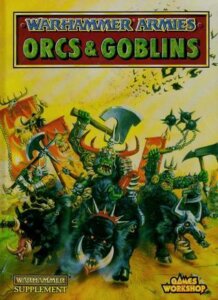 It’s worth looking at how we’ve ended up in this scenario though. Army books have been a main staple of Warhammer in most of it’s guises – from Warhammer Armies books through to Codexes and Battletomes. Books would contain all of the rules needed to play that army alongside some flavour text and lore, they’d also be soft-backed and reasonably priced, not cheap enough you’d buy them all, but not so expensive you couldn’t afford them. Game edition lifecycles were also long – though not as long as the lifecycle of an army book. It wasn’t uncommon to have one army book be valid for two editions of a game. Being before the time of the internet, there were no modifications, if a rule didn’t work or points were wrong that was basically it for 5 or more years when it got a new version released.
It’s worth looking at how we’ve ended up in this scenario though. Army books have been a main staple of Warhammer in most of it’s guises – from Warhammer Armies books through to Codexes and Battletomes. Books would contain all of the rules needed to play that army alongside some flavour text and lore, they’d also be soft-backed and reasonably priced, not cheap enough you’d buy them all, but not so expensive you couldn’t afford them. Game edition lifecycles were also long – though not as long as the lifecycle of an army book. It wasn’t uncommon to have one army book be valid for two editions of a game. Being before the time of the internet, there were no modifications, if a rule didn’t work or points were wrong that was basically it for 5 or more years when it got a new version released.
As you can imagine, this caused all sorts of problems because some armies were horrifically skewed. Back in the day though house ruling was commonplace and the competitive tournament scene would often have event packs that adjusted specific things to balance it out. The key point was Games Workshop’s focus wasn’t a balanced game, it was a thematic game with cool miniatures.
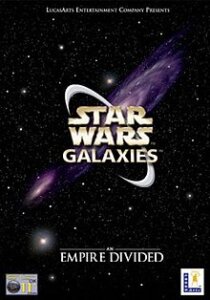 As time progressed, the lore and background content of army books increased to the point where you had a good 50/50 split. They also for some reason went over to a hard-back book increasing the weight by 30%, but making them look nicer on a shelf. Computer games became more common place and with the invention of massively multiplayer online games such as EverQuest, Star Wars Galaxies and World of Warcraft, frequent “tinkering” of game rules became commonplace on a very regular basis in the form of “patches”. Gamers became less willing or able to make house rules and more vocal in their frustration when something didn’t work or they didn’t understand it. As the internet became commonplace Games Workshop used this to begin to release FAQs and updates in an effort to balance what are arguably unbalancable game systems to the point where they do this at least every 6 months.
As time progressed, the lore and background content of army books increased to the point where you had a good 50/50 split. They also for some reason went over to a hard-back book increasing the weight by 30%, but making them look nicer on a shelf. Computer games became more common place and with the invention of massively multiplayer online games such as EverQuest, Star Wars Galaxies and World of Warcraft, frequent “tinkering” of game rules became commonplace on a very regular basis in the form of “patches”. Gamers became less willing or able to make house rules and more vocal in their frustration when something didn’t work or they didn’t understand it. As the internet became commonplace Games Workshop used this to begin to release FAQs and updates in an effort to balance what are arguably unbalancable game systems to the point where they do this at least every 6 months.
However Codexes and (now) Battletomes still are being produced in almost exactly the same formulaic format we’ve seen for thirty years. With money being as tight as it is, people are getting frustrated when an update causes their expensive book to become partly redundant within moments of purchase and I believe they are right to get frustrated.
 The million dollar question is how can we fix this. Going fully digital is often thrown around as “the solution”, but it’s a poor one in my eyes. Miniature gaming is a tactile hobby with physical miniatures to move around a board, moving the rules to be digital only is one step away from playing on the computer – I can and do that already. I don’t want to cart around an expensive tablet or be forced to use a mobile phone when I’m gaming, it’s bad enough the amount of time I spend attached to screens already without being forced to make it part of my miniatures hobby. That’s without considering charging the device, where we know most venues are very ill equipped with power sockets – and remote internet access is often poor.
The million dollar question is how can we fix this. Going fully digital is often thrown around as “the solution”, but it’s a poor one in my eyes. Miniature gaming is a tactile hobby with physical miniatures to move around a board, moving the rules to be digital only is one step away from playing on the computer – I can and do that already. I don’t want to cart around an expensive tablet or be forced to use a mobile phone when I’m gaming, it’s bad enough the amount of time I spend attached to screens already without being forced to make it part of my miniatures hobby. That’s without considering charging the device, where we know most venues are very ill equipped with power sockets – and remote internet access is often poor.
Now Games Workshop do have an app that you can unlock the rules for with a code which gets updated when changes are made. However it’s yet again meaning I need to have that digital device and although I appreciate it’s my personal choice to not use one, there are people who can’t use one or their digital device isn’t capable of running the application and a digital only solution would exclude those people.
I feel instead we need dial out a bit and to look at the actual problem which I consider to be:
the rules and points in books get invalidated too quickly.
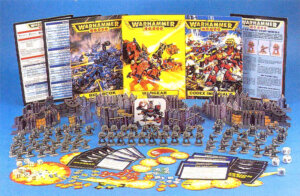 I don’t believe the issue to be Codexes and Battletomes being physical books, more the format of those books no longer works. Specifically in the mixing of lore and rules/points – one stays in date for many years and the other becomes out of date very quickly. I think that separating those two and having the rules & points in a format that can easily be updated would solve the majority of the complaints I’ve mentioned and read online. It’s a format we’ve seen Games Workshop use in the past too – 2nd edition 40k separated the background from the rules, as did Warhammer Quest, so why not go full circle and go back towards that format?
I don’t believe the issue to be Codexes and Battletomes being physical books, more the format of those books no longer works. Specifically in the mixing of lore and rules/points – one stays in date for many years and the other becomes out of date very quickly. I think that separating those two and having the rules & points in a format that can easily be updated would solve the majority of the complaints I’ve mentioned and read online. It’s a format we’ve seen Games Workshop use in the past too – 2nd edition 40k separated the background from the rules, as did Warhammer Quest, so why not go full circle and go back towards that format?
As a suggestion, you could have a lovely hard-back book containing lore and awesome artwork, packaged with a separate booklet or set of hole-punched pages containing the rules and points. When the points get changed you just print out the new version and ditch the old ones – there could even be a way of swapping the old for a new in GW stores, which would have the benefit of encouraging people into brick and mortar shops. Not only do you never have to take your book of background outside the house, but the rules & points section is very gamer friendly because it’s small and lightweight.
So that’s this edition of musings over. I do believe that the items Games Workshop produces in paper form needs to be thought about because it’s not changed for thirty years despite everything else moving forward. That said, you dear reader might not agree with me! As ever, please feel free to comment below if you agree or not on what I’ve said and give me your thoughts
* To pre-empt people correcting me that it should be Codices (including my spell-checker), in this context Codexes is correct. Basically Games Workshop has a bastardised version of Latin called Imperial Gothic within Warhammer 40k universe and the Codex that the army books refer to is Codex in this context. As such we should be using Imperial Gothic pluralisation of Codexes.
